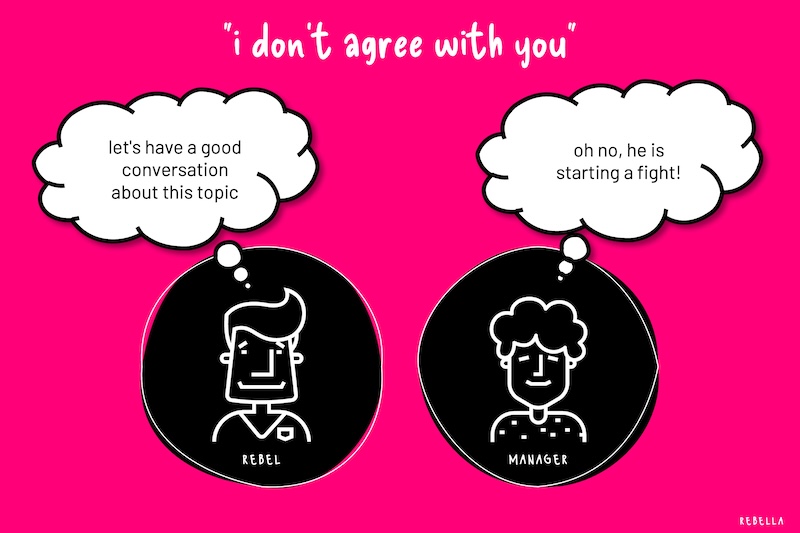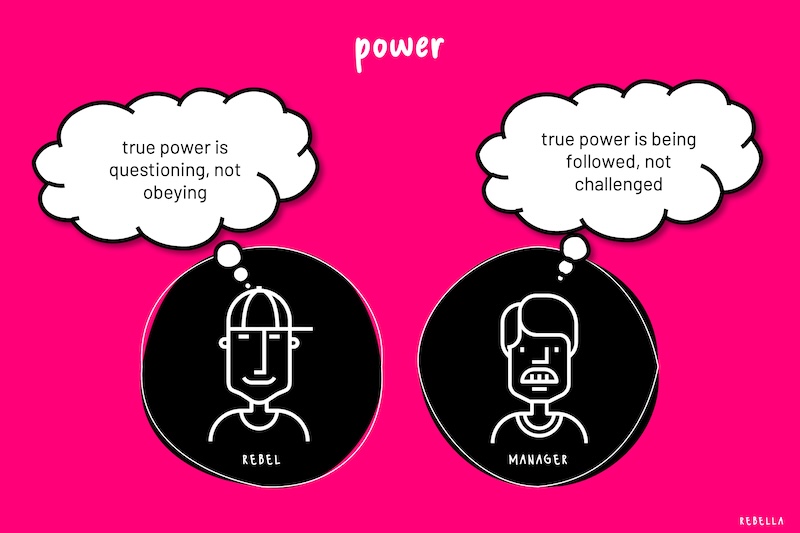
Dr Rebel: Where conformity rules, a well-timed 'no' is worth its weight in gold
Today’s question: As a rebel, how do you make sure your viewpoint is taken seriously without coming across as difficult?
Rebels challenge ideas, question assumptions, and push for change, not to provoke, but to improve. But those who value harmony or consensus can quickly see this as disturbing and unsettling, especially when it challenges their sense of comfort or stability. And thus, one of the biggest struggles for rebels is speaking up and challenging the status quo without being seen as difficult or negative.
Why do some people find rebellious behaviour annoying?
The first step is to understand why people find rebels difficult. Those who are more focused on harmony or structure often struggle with typical rebel behaviours, such as:
- Being overly critical: constantly asking “why” or challenging existing ideas feels like undermining.
- Pushing/questioning: even if well-intentioned, continuing to question can feel like an attack.
- Openly contradicting: especially in a group setting, this can quickly come across as confrontational or negative.
- Offering unsolicited alternatives: well-intentioned, but sometimes inconvenient if people aren’t ready for change.
- Pushing for change without support: this can feel threatening to people who value predictability.
So, it often comes down to intention, tone, timing, and tact.
Seven practical tips to rebel constructively
Most rebels feel compelled to speak up when they notice wrongdoing or inefficiency. Here are seven tips to help do so more effectively:
1. Never, ever make it personal. Always focus on the idea or behaviour, never on the individual. Criticism that feels personal puts people on the defensive and shuts down dialogue. Instead of saying, “You didn’t think this through”, try: “I think there may be some key points we need to revisit in this plan”.
2. Choose your words wisely. The way you express an idea can make all the difference. Words carry tone, emotion, and intention, often more than we realise. Thus, aim for language that is respectful, constructive, and invites discussion. For example, replace “This won’t work” with “I’m not sure this will get us the result we want. What if we tried…?”
3. Frame criticism as curiosity. Rather than saying, “This isn’t right”, try: “What’s the thinking behind this approach? I’m curious how we arrived here”. This softens your message while still prompting important questions. It feels less like an attack and more like genuine interest.
4. Seek connection before introducing friction. People are more open to feedback when they feel acknowledged and understood. Begin with a statement of recognition: “I can see how much thought and effort went into this, and I understand why this direction was chosen…”. Then, gently introduce your perspective: “I’m wondering if we might also consider X, because…”
5. Align your perspective with the shared goal. Make it clear you are not pushing back to challenge, but to contribute to a better outcome. Show that your input supports the team’s objective: “My concern is that this approach might not fully address [important goal]. I am raising this because I want to help ensure we succeed”.
6. Offer alternatives, not just critiques. People are more receptive to “no, and here’s another idea” than just “no”. Try saying: “What if we looked at it from this angle?” or “Could we test whether this alternative might be more effective?”.
7. Read the room and choose your moments wisely. Rebels often spot risks or opportunities for improvement early, but timing is crucial. If you speak up too soon or too frequently, others may stop listening. So, when you feel the urge to speak up, first ask yourself if it is the right time, if this group is open to hearing it now, or whether you could better say it in a one-on-one setting.
Never be a rebel without a cause
The most effective rebels aren’t the loudest in the room, but the ones who know when to speak, how to say things, and why it matters. They challenge, but with care, and they disrupt, but with direction. Their approach keeps others open, not defensive. Use these seven tips, and you’ll shift from being ‘that difficult colleague’ people avoid to the trusted team member everyone turns to for insight and perspective.

do you have a burning question for dr rebel?


